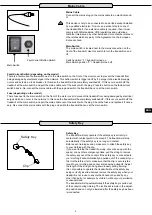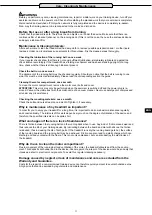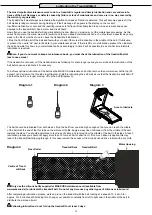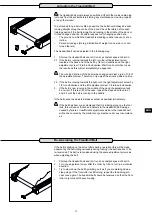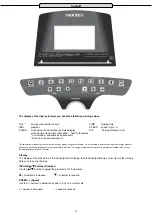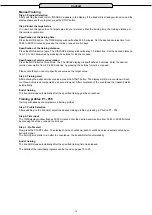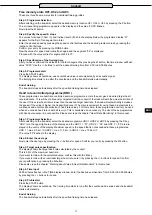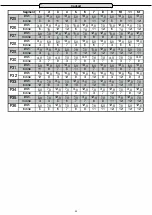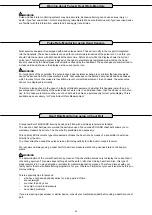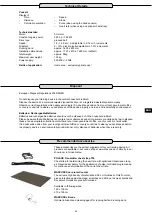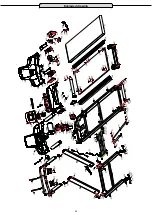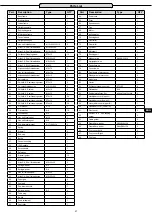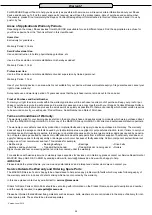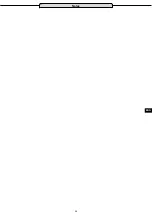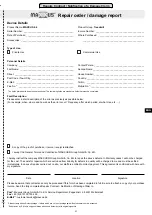
22
WARNING
Pulse and heart rate monitoring systems may be inaccurate. Excessive training can cause serious injury or
death. If you feel unwell and / or faint, stop training immediately. Make sure that all users of your exercise device
are familiar with this information, understand it and apply it at all times.
Most exercise equipment is equipped with hand pulse sensors. These are mostly in the cockpit or integrated
into the handrails. These hand sensors are used for short-term determination of the pulse rate. To do this, you
should hold the sensors with both hands at the same time. After a short while, the display shows the current
pulse rate. This measuring system is based on changes in electrical skin resistance measured by the hand
sensors caused by the blood pressure fluctuations caused by the heartbeat. These changes are summarized to
a mean value and shown in the display as the current pulse rate.
WARNING
For large parts of the population, the pulse-induced skin resistance change is so minimal that usable values
cannot be derived from the measurement results. Also callouses on the palms, damp hands and body shakes,
which in many forms of exercise are inevitable, prevent correct measurement. In such cases, the pulse value
cannot or is displayed incorrectly.
Therefore, please check in the case of a faulty or failed measurement, whether this happens just with one or
several people. If the display of the pulse does not work only in an individual case, then the device is not defec-
tive. In this case we recommend the use of a chest belt to achieve a permanently correct pulse display. This is
available as an accessory for Pulse & Heart Rate Measurement
A large number of MAXXUS® training devices are fitted with a wireless receiver as standard.
The use of a chest belt (we recommend the exclusive use of an uncoded POLAR® chest belt) allows you to
wirelessly measure heart rate. The chest belt is available as an accessory.
This optimal, ECG-accurate type of measurement takes the heart rate by means of a transmitter chest strap
directly from the skin.
The chest strap then sends the pulses via an electromagnetic field to the built-in cockpit receiver.
We recommend always using a chest belt for heart rate measurement during use heart rate controlled pro-
grams.
WARNING
The determination of the current heart rate by means of the chest strap serves only to display the current heart
rate during exercise. This value says nothing about the safe or effective training heart rate. Also, this type of
measurement is in no way designed or suitable for medical diagnostic purposes. Therefore, discuss with your
family doctor the most suitable training programme for you. Create and implement your exercise plan before you
start exercising.
This is especially true for persons:
−
who have not been physically active for a long period of time
−
are overweight
−
are older than 35 years
−
have high or low blood pressure
−
have heart problems
If you are wearing a pacemaker or similar device, consult your medical specialist before using a heart rate chest
belt.
Warning about Pulse & Heart Rate Monitors
Pulse Rate Monitoring using Hand Sensors
Heart Rate Monitoring using a Chest Belt
Summary of Contents for 6.4
Page 1: ...1 ENG MAXXUS 6 4 Treadmill I N S TA L L AT I O N O P E R AT I N G M A N U A L...
Page 26: ...26 Exploded drawing...
Page 29: ...29 ENG Notes...
Page 30: ...30 Notes...


